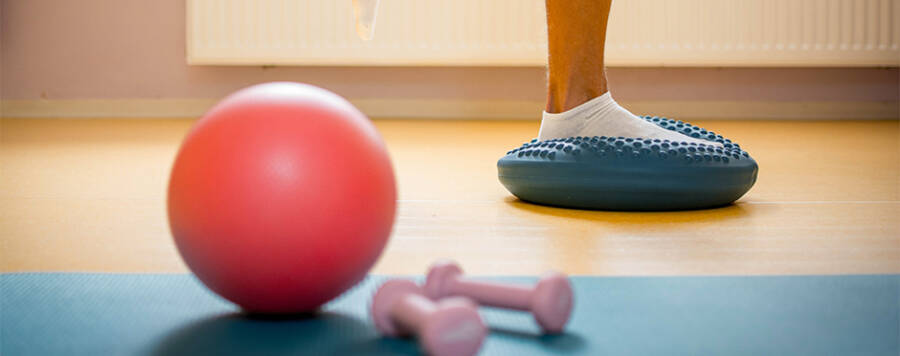1. Your home program is selected to help manage your pain
Movement is often thought to cause pain, but in many cases the correct movements, stretches, or exercises can help improve your pain. “Motion is lotion” and your joints appreciate movement to help circulate blood, oxygen, and joint fluid to help you recover and move better. Your therapist selects the appropriate exercises for you that will help you feel better and may help prevent swelling, stiffness, or additional pain.
Think of your home program similar to a medication prescription; your doctor advises you to take medicine once a day for a length of time, just as your physical or occupational therapist prescribes exercises in a similar manner.
2. Your home program can speed your recovery time
Many times, you attend therapy several times per week for about one hour each visit. In a given week, that’s only 2-3 hours out of 168 hours – you spend more time out of therapy than in therapy! Your home exercise program is there to help you recover and fill in the gaps. Stretching and strengthening muscles takes time and the more time you can commit to your home therapy routine means a greater likelihood of a faster recovery.
*Note: You should follow the program provided by your therapist as they will prescribe the number of repetitions and frequency of exercises based on your specific injury. It is important to not overdo your exercises.
3. Exercise has overall good health benefits
A little bit of exercise can do a lot of good! Exercising can improve mood, decrease stress levels, and help improve your sleep habits. Your home therapy exercises might not feel like a large workout but the little bit of movement can help establish a routine which can boost your overall fitness in the long run.
4. Home programs can help decrease chance of re-injury or flare ups
Your home exercise program is selected with your specific needs in mind. Many times your therapist is attempting to “retrain” your muscles to work in an optimal manner. Your home program reinforces this training. Maintenance of a home program can lead to decreased risk repeated injury and can help you self-manage flare ups before they become a bigger problem.
For questions regarding physical or occupational therapy and home programs, schedule a free assessment in-clinic or virtually through our Telehealth platform.
The Athletico blog is an educational resource written by Athletico employees. Athletico bloggers are licensed professionals who abide by the code of ethics outlined by their respective professional associations. The content published in blog posts represents the opinion of the individual author based on their expertise and experience. The content provided in this blog is for informational purposes only, does not constitute medical advice and should not be relied on for making personal health decisions.
About the Author:
Tara Hackney, a physical therapist in Marion, IA, enjoys working with all patient types, especially gymnasts, cheerleaders, and dancers. She is the prominent blogger for Athletico's Gymnastic/Cheer Program. With an orthopedic specialization and training in dry needling and Graston technique, Tara hopes to answer your questions about injuries and injury prevention in an easy-to-understand manner. She hopes to ease fears surrounding pain and injuries, address concerns about recovery, and provide tips to prevent injury. In her free time, she enjoys spending time with her dog, reading, and watching her nephews play sports.

 width="900"
height="356"
>
width="900"
height="356"
>
